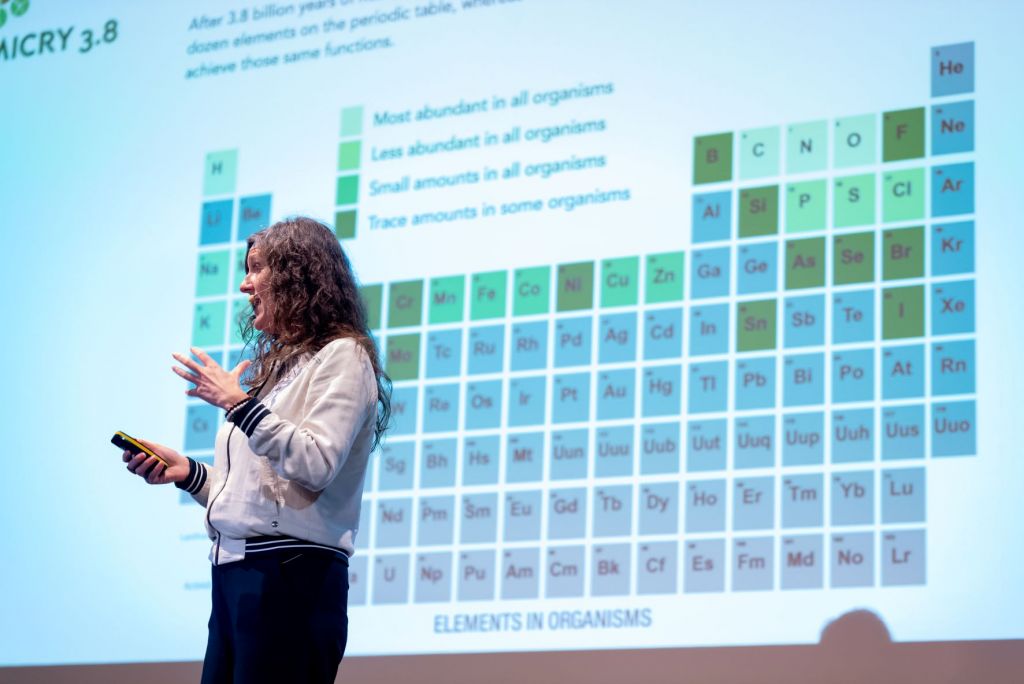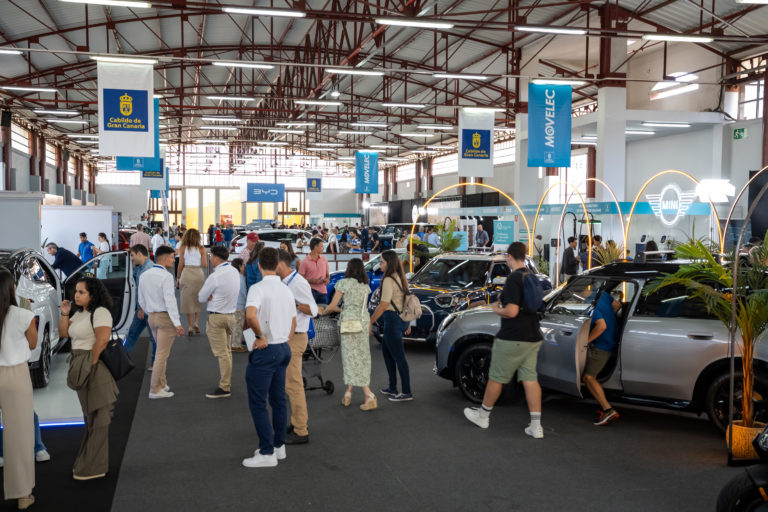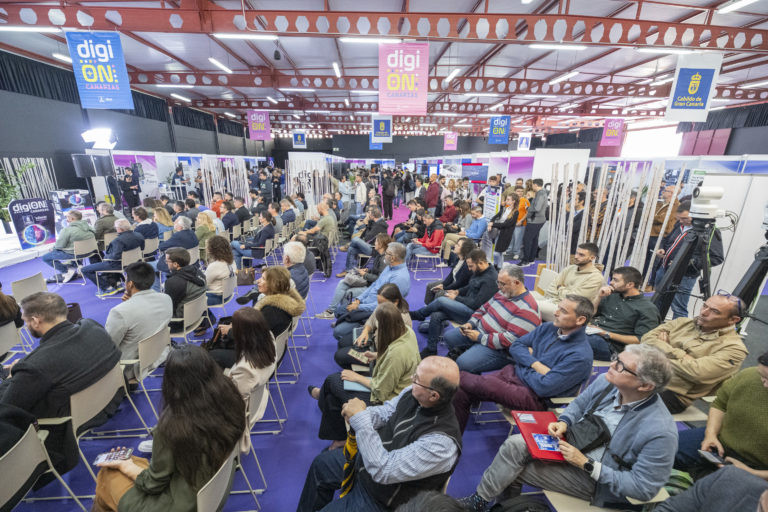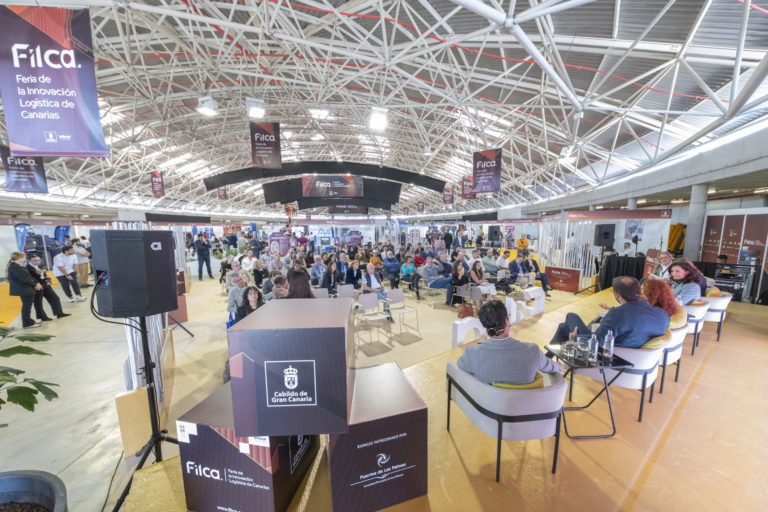- The first Ecoislas International Forum has opened today Friday’s program with the biologist specialized in ecology and regenerative design and bio-inspired innovation Founder of Centre4NI, Leen Gorissen.
- The event will also feature today’s plenary session by Cristian Felber, in addition to a dozen parallel sessions.
The first Ecoislas International Forum has opened its morning program of the second day with the plenary session of the biologist specialized in ecology and regenerative design and bio-inspired innovation Founder of Centre4NI, Leen Gorissen, who explained how nature is the key to the future of the planet. “Nature has been building and living together for 3.8 billion years and is the undisputed showcase of continuous innovation, adaptation and regeneration. It will be natural intelligence that will save our future.”
There are already real examples of this natural intelligence, companies that “grow bricks” for the construction of their buildings, concrete inspired by the formation of corals, plant coverings capable of regulating temperature, silk fibers inspired by the design of spiders, carpets based on forest floors… “We need to use this intelligent nature and its logic to create the planet we need, one that is better than the one we found,” he says.
In nature “everything is reusable and recyclable, nothing has only one use”, and has been so for “billions of years, without degradation and without pollution”, so the challenge for humans is “to recycle completely”, in a radical change that involves the redesign of cities.
In this line, Leen Gorissen has delved into the regenerative capacity of nature, because it is “the time to expand the concept of intelligence to add natural intelligence” which is synonymous with “surviving and fighting against constant changes and with limited resources”. The question he posed is “how to innovate in a way that benefits future life, not only human life but that of the entire planet Earth”. The future requires firm and decisive actions “not to be part of the destruction of the Earth”, and this premise that “seemed crazy, is already real”, and this has been demonstrated by companies around the world working “with almost zero emissions”.
For Leen Gorissen, at this critical moment of climate change “it is time to learn from those who built the world and find that exchange of values and functions to reach an agreement with the Earth” because “the future of nature is ours”.
The environment as a right
The Canary Islands Hall of Infecar also hosted the session on ‘Ecoislas: the challenge of the future’, a round table where Gran Canaria and Mallorca were able to share experiences, synergies and reflect from the insular approach.
The Councilor for Territorial Policy and Landscape of the Cabildo de Gran Canaria, Inés Miranda, has pointed out how the new Insular Management Plan (PIOGC) recently approved is a step forward in the Ecoisland model defended by the island corporation since 2015. “We understand, and so we capture it, that the uses must be defined and useful to respond to the needs of the people and the economic development of the island”, from social justice and the environment understood “as a human right that must be respected and made effective”.
Within the transversal and fundamental axes of this model, he highlighted the landscape, because “in addition to economic development, the landscape is what is perceived by those who live and visit the island and what will ensure that tourism remains sustainable and is on the right track”. Tourism must change in order to “take care of and add value”, which is why he is committed to renovation and not to new land occupation, and to a “sustainable tourism that is identity-based”.
As an example, he cited the north and northwest of Gran Canaria, which is heading towards a “different” tourist development that leaves behind “tourist resorts and tourist development for a new model that takes advantage of what there is and with buildings that reflect the culture and architecture of Gran Canaria”. The island is firmly committed to nature hotels, to dismountable and reusable structures, and to a “careful” planning to guarantee the survival of the primary sector.
In this sense, the technical coordinator of Economic Development, Energy Sovereignty, Climate and Knowledge of the Cabildo de Gran Canaria, Raúl García Brink, has put in value the ‘agrivoltaica’ as an innovative solution with great results. “Combining the use of the soil for agriculture, which is a priority, with the use of solar energy” means “a higher crop yield and a complementary and interesting income for producers”.
It is not the only example, Raul Garcia Brink has pointed out that the island “is not that it will be a laboratory of innovation in ecological transition, is that it already is” with examples such as water desalination with sea energy or pioneering projects in offshore. For the technical coordinator of Energy Sovereignty of the Cabildo de Gran Canaria, energy communities have made it possible to “democratize and decentralize the energy model of the island” with a “shared self-consumption”, which is “a big difference”.
The executive councilor for Sustainability and Environment of the Consell de Mallorca, Aurora Ribot, congratulated Gran Canaria for its commitment to an eco-island model, which they share and where they are moving forward with new measures. “In the Balearic Islands we have understood that the tourism model must continue to be compatible with life and sustainable in the long term” and for this “it needs to change and abandon the current tourist monoculture, which is so predatory and socially stresses the population”. In the Balearic Islands, it has been decided to “set limits” because it was time to decide “whether to create new roads or infrastructures to continue adding tourists or to move towards the eco-island we want”.
Afternoon session
The first International Ecoislands Forum will include a plenary session by the promoter of the Theory of the Common Good, Christian Felber, as well as a dozen parallel sessions and working tables. This first edition of the Ecoislas Forum, which opened its doors on Thursday to receive more than 60 speakers from academic, administrative, financial, business and social sectors, seeks to be a space for discussion, proposals and promotion of measures aimed at promoting the transition to a greener, more profitable, more self-sufficient and environmentally sustainable socio-economic model with an island approach.
This 1st International Ecoislas Forum is sponsored by Cajasiete, as official collaborator; with the sponsorship of Ewaste, Fundación Canarias Recicla, Astican and Inetel; the participation of Greening The Islands, Proyectos Europeos and Mac Clima; and with the collaboration of the Consejo Insular de la Energía, Spegc, the University of Las Palmas de Gran Canaria, the Clúster Marítimo de Canarias, the Consejo Insular de Aguas de Gran Canaria, the Plataforma Oceánica de Canarias, the Instituto Tecnológico de Canarias, Gesplan and the Chamber of Commerce of Gran Canaria.



